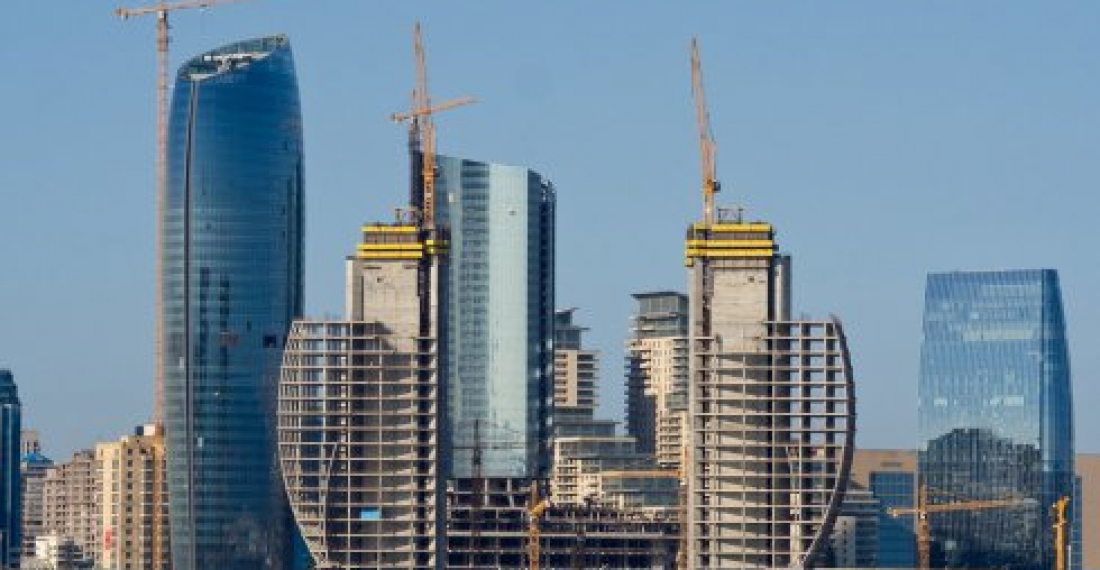Azerbaijan's leading economic think-tank, the Centre for Economic and Social Development (CESD), has just published its preliminary assessment of the impact of the Covid-19 pandemic on the Azerbaijani economy. In its recommendations CESD says the shadow economy has to be eliminated, while state-owned enterprises must be required to implement deeper reforms. The report concludes that "transition to a more liberal regime seems to be reasonable within this context."
The report says that from among the post-soviet countries, Azerbaijan allocated the largest share of GDP, in order to eliminate the economic consequences caused due to the outbreak of COVID-19. The report warns that providing favorable economic conditions in the post-pandemic period is going to be as crucial as supporting the economy during the period of the pandemic itself.
According to the official data provided by the State Statistics Committee, the gross domestic product (GDP) produced in the country between January-June 2020 was 2.7 % less in comparison with the same period last year. Value-added in the non-oil and gas sector of the economy decreased by 2.5 %, while the decrease in the oil and gas sector was of 2.9 %.Due to the restrictions on travel, the tourism sector was among the most severely hit sectors. Services, catering, and transportation were also significantly impacted incurring considerable losses. There was a considerable decrease in the volumes of exports and imports as well, mainly related to a decrease in oil exports.
There was also a decline in the industrial production in the first half of 2020. Demand for foreign currency rose steadily as consumers' concerns increased.
The report notes that the international rating agency Fitch has predicted Azerbaijan's long-term foreign-currency issuer default rating (IDR) at 'BB +' with a negative outlook.
The government had to implement particular measures aimed at the stabilization and maintenance of the economy.
The report asseses the Action Plan of the Cabinet of Ministers that outlined the measures that were subsequently provided to allievate some of the economic consequences of the pandemic on business and economy. The amount of money allocated from the state budget to pay the salaries of workers, operating in the areas that were affected by the pandemic amounted to 69,119,000 manat ($ 40,658,235). 55,637,000 manat ($ 32,727,647) was allocated to support the owners of self-employed or micro entrepreneurship.
According to official data 35 million manat ($ 20,58 million) were paid to the Entrepreneurship Development Fund with the aim of providing state guarantees for bank loans and subsidized interest rates. The total sum of 159, 757,000 manat ($ 93,974,705) was paid in these areas on the basis of the order of the Ministry of Economy. The economic support program of the government also included tax benefits, some privileges and tax breaks for business entities. To be more coherent, the tax payers engaged in catering activities had tax reduction and exemption from income tax. At the same time, the import of some goods related to food and medical security, including the raw materials used in the production of these goods, was temporarily exempted from Value Added Tax (VAT). Meanwhile, depending on the method of taxation chosen, taxpayers were also provided with several tax breaks.
The report says that entrepreneurship ecosystem was devastatingly affected as a result of the situation that emerged from the pandemic and additional packages of support need to be considered.
The report recommends that tax benefits to businesses affected by the pandemic, should be extended for the existing beneficiaries till January 1, 2021. In the meantime, it says, there is a need in a sectoral assessment which may assist in specifying the areas most in need of assistance.
In conclusion the report says that there was a need for new approaches in the process of reform currently ongoing, and the gradual re-opening of the economy should be based on new standards. There is a need to optimize the usage of the oil revenues whilst continuing to explore alternative sources for the budgetary since an increasing dependence on oil revenues contradicts to the diversification policy.
The report says that the shadow economy has to be eliminated, while state-owned enterprises (SOEs) must be required to implement deeper reforms. Transition to a more liberal regime seems to be reasonable within this context.
The report finally concludes by remarking that the economic strategy for the recovery in the post-pandemic period needs to be further considered and studied in detail.
You can read the report in full on the CESD website here
source: commonspace.eu with CESD, Baku.
photo: Baku Skyline (archive picture)
The views expressed in opinion pieces and commentaries do not necessarily reflect the position of commonspace.eu or its partners







